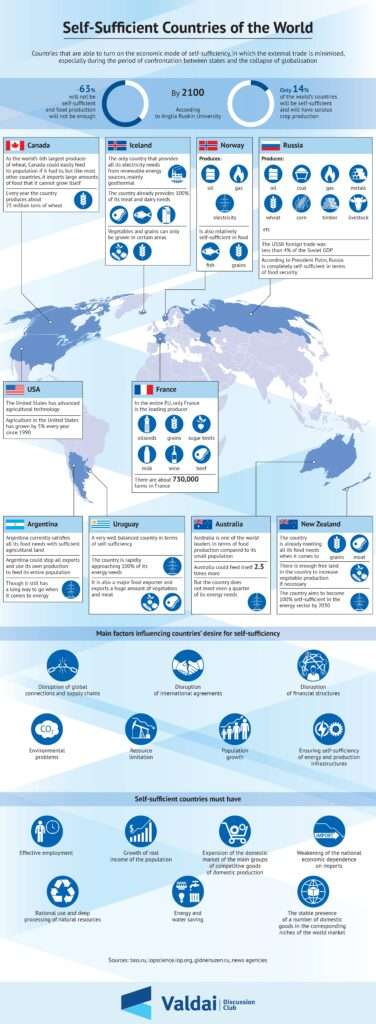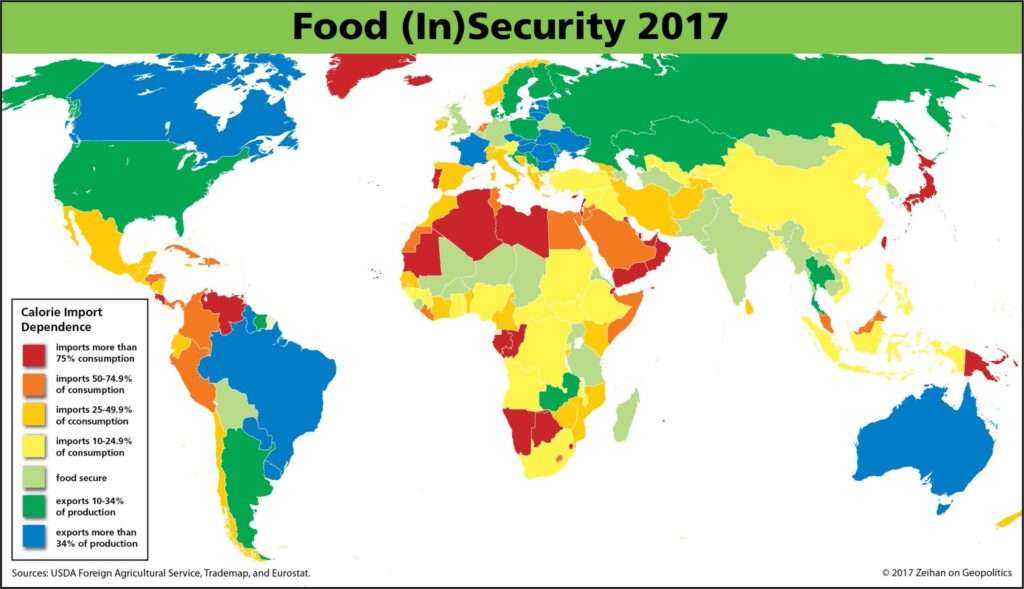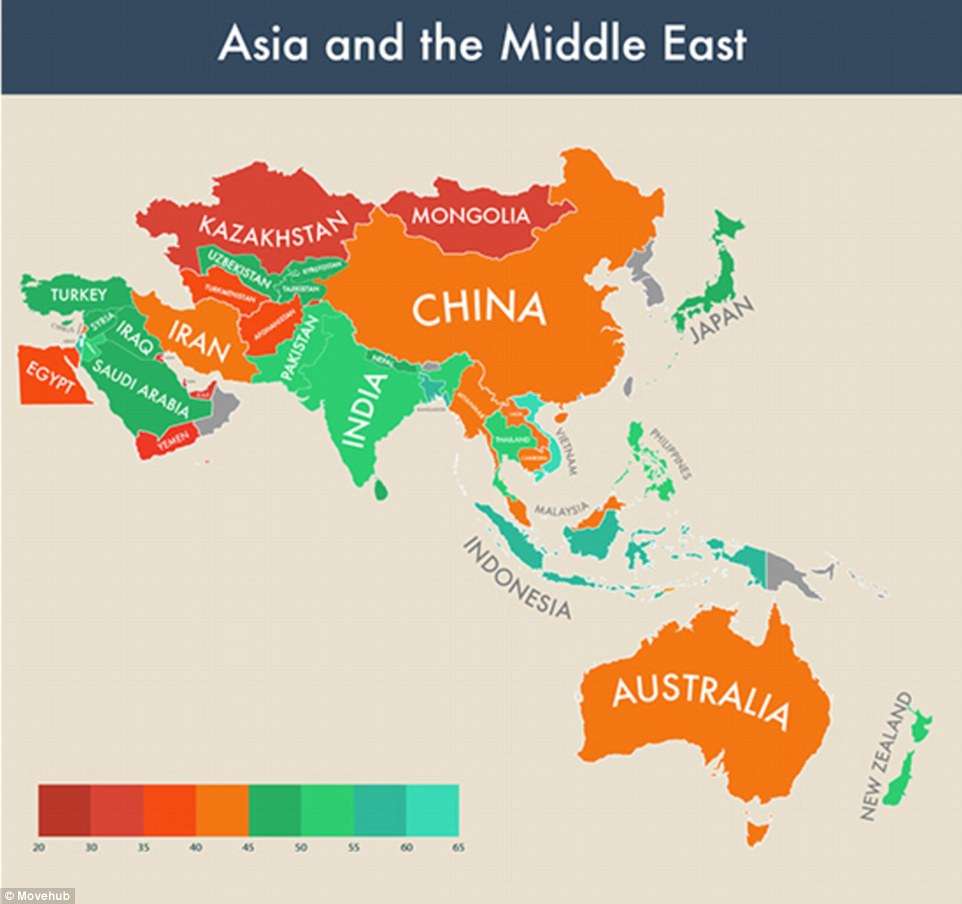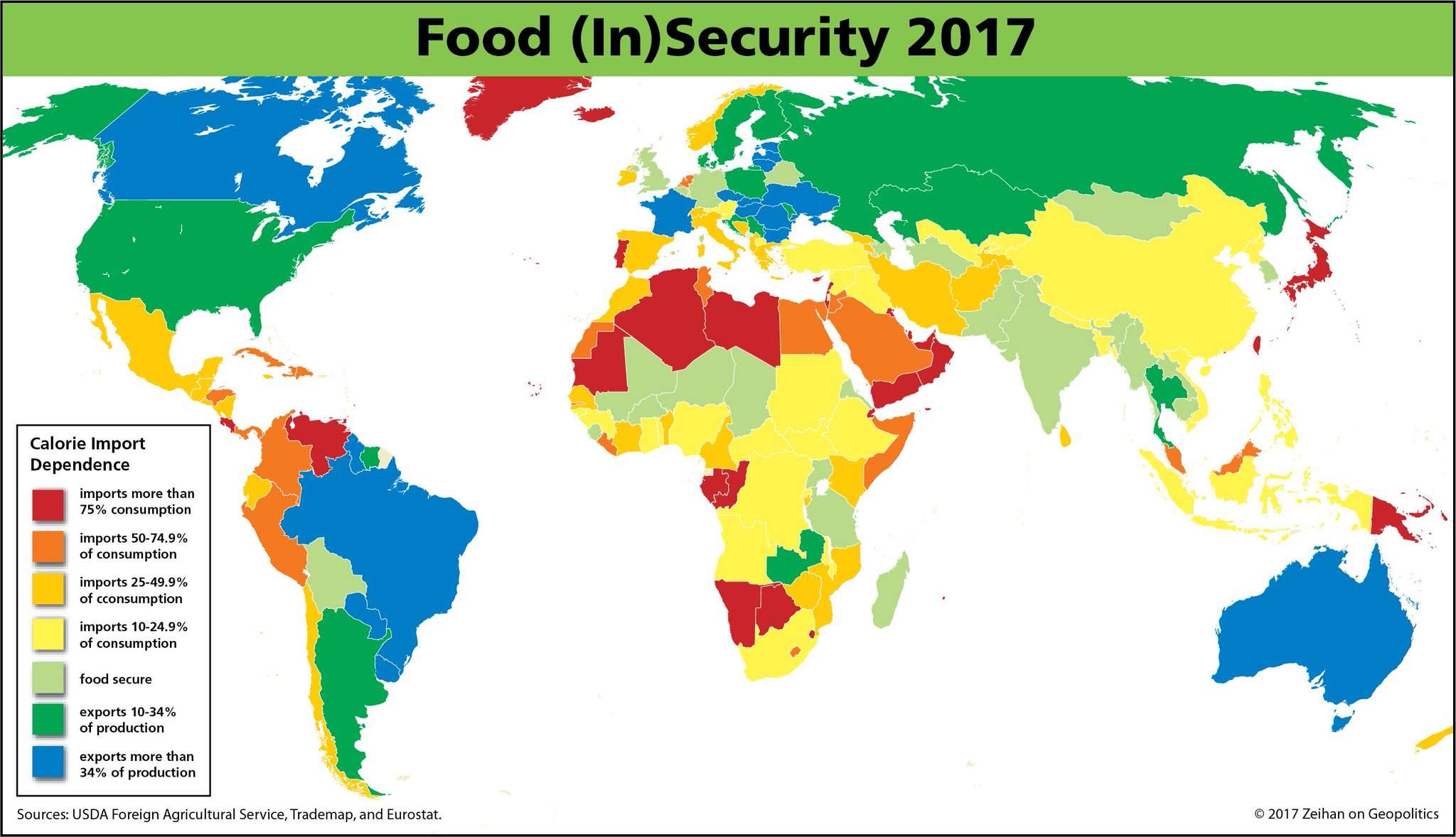Hi there! In this article, we’re going to talk about the most self-reliant country in the world. We’ll explore the concept of off-grid living and dive into the question of which country takes the title of being the most self-reliant. By the end of this read, you’ll have a better understanding of what it means to live off-grid and which country is leading the way in self-sufficiency. So let’s get started!

The Most Self-Reliant Country in the World
In today’s interconnected and globalized world, the concept of self-reliance has gained significant importance. As countries face various challenges, including economic uncertainty, environmental concerns, and technological advancements, the ability to be self-reliant becomes crucial. This article will explore the idea of self-reliance, the current global challenges that highlight its importance, and examine potential candidates for the title of the most self-reliant country in the world.
The Concept of Self-Reliance
Self-reliance refers to an individual or a country’s ability to meet their own needs independently, without relying on external sources of support. It involves developing the skills, resources, and mindset necessary to be self-sufficient in various aspects of life, including economic, energy, food, and technology. The concept of self-reliance promotes autonomy, resilience, and adaptability, allowing individuals and countries to navigate challenges effectively.
Current Global Challenges and the Importance of Self-Reliance
In today’s world, countries face numerous challenges that highlight the importance of self-reliance. Economic uncertainty, geopolitical tensions, and natural disasters can disrupt global supply chains and lead to shortages in critical resources. Climate change and the depletion of natural resources necessitate sustainable and self-sufficient practices to ensure long-term survival. Additionally, advancements in technology and the potential risks associated with dependence on foreign technology call for countries to develop their own innovative capabilities.
The ability to be self-reliant enables countries to mitigate the impact of these challenges. By diversifying their economies, developing local resources, and fostering innovation, self-reliant countries can safeguard their societies and enhance their resilience.
Off Grid Living: A Path to Self-Reliance
One way individuals pursue self-reliance is through off-grid living. Off-grid living refers to a lifestyle in which individuals or communities are completely self-sufficient and independent of public utilities such as electricity, water, and sewage. This lifestyle promotes sustainability, resource conservation, and reduced environmental impact. By generating their own energy, growing their own food, and managing their waste, those who choose off-grid living strive to achieve self-reliance in key aspects of life.
What is Off-Grid Living?
Off-grid living involves living in a self-sustained manner, disconnected from the traditional sources of utilities and services. This could mean relying on renewable energy sources such as solar or wind power, collecting rainwater for personal consumption, and growing one’s own food through gardening or livestock farming. Off-grid living often requires a significant level of planning, investment, and lifestyle adjustments, but it offers individuals the opportunity to be independent and reduce their ecological footprint.
Benefits of Off-Grid Living
Off-grid living provides numerous benefits for individuals aiming for self-reliance. Firstly, it allows individuals to have control over their energy consumption. By utilizing renewable energy sources, off-grid dwellers can reduce their reliance on fossil fuels and contribute to a cleaner, greener environment. Secondly, off-grid living promotes a self-sustainable food system. Individuals can grow their own organic produce, rear animals for meat or dairy products, and reduce their dependence on mass-produced, potentially harmful food sources. Finally, off-grid living fosters a sense of personal empowerment and resilience. Individuals become self-sufficient and less reliant on external systems, which can be particularly advantageous during times of societal or economic instability.
Self-Reliant Countries and Off-Grid Living
While off-grid living is more commonly associated with individuals or smaller communities, several countries have made significant strides towards becoming self-reliant in various areas. These countries have recognized the importance of reducing dependency on external resources and have embraced sustainable practices, including off-grid living, to achieve self-sufficiency.
Examining the Criteria for Self-Reliant Countries
To evaluate potential candidates for the title of the most self-reliant country in the world, it is essential to consider several criteria. These criteria include economic self-reliance, energy self-sufficiency, food security, and technology independence.
Economic Self-Reliance
Economic self-reliance refers to a country’s ability to sustain its economy without significant reliance on external markets or resources. A self-reliant country diversifies its industries, builds a strong domestic market, and encourages local entrepreneurship and innovation. Economic stability is vital for long-term self-reliance, as it enables a country to withstand external shocks and fluctuations.
Energy Self-Sufficiency
Energy self-sufficiency involves the ability to generate enough energy domestically to meet a country’s needs. This can be achieved through the utilization of renewable energy sources such as solar, wind, hydro, or geothermal power. Energy self-sufficiency reduces dependence on fossil fuels, enhances environmental sustainability, and provides a stable energy supply even during global energy crises.
Food Security
Food security entails a country’s ability to produce an adequate supply of nutritious food for its population. A self-reliant country prioritizes local food production, promotes sustainable farming practices, and invests in agricultural research and innovation. Ensuring food security reduces vulnerability to external disruptions and guarantees access to safe and affordable food for the population.
Technology Independence
Technology independence refers to a country’s capability to develop and innovate in various technological fields. A self-reliant country invests in research and development, fosters a culture of innovation, and encourages entrepreneurship. Embracing technology independence reduces reliance on foreign technology, enhances national security, and supports economic growth.
Evaluating Potential Candidates
To determine the most self-reliant country in the world, it is crucial to compare countries’ efforts in different areas of self-reliance and examine their overall performance. Several countries have made noteworthy progress in achieving self-reliance and serve as potential candidates for further evaluation.
Comparing Countries’ Efforts in Different Areas of Self-Reliance
To compare countries’ efforts in achieving self-reliance, it is necessary to analyze their initiatives in economic diversification, renewable energy adoption, sustainable agriculture, and technological innovation. By assessing the extent to which countries prioritize and succeed in these areas, we can gain insights into their overall self-reliance.
Case Studies of Self-Reliant Countries
To gain a deeper understanding of self-reliant countries, we will now examine specific case studies of countries known for their achievements in various aspects of self-reliance. Norway, Sweden, Iceland, and Finland serve as noteworthy examples and highlight different approaches to achieving self-reliance.
Norway: A Case Study of Self-Reliance
Norway stands out as a notable example of a self-reliant country. Recognized for its economic independence, energy generation, food security, and technological advancements, Norway has established itself as a global leader in self-reliance.
Norway’s Economic Independence
Norway’s economy is characterized by diversification and sustainability. The country’s wealth is built upon its substantial reserves of oil and gas, but it has successfully managed to invest its resource income into a sovereign wealth fund. This fund, the Government Pension Fund Global, has become one of the largest in the world, allowing Norway to ensure economic stability and long-term self-reliance.
Energy Generation and Conservation in Norway
Norway is a global leader in renewable energy generation. The country heavily relies on hydroelectric power, utilizing its abundant water resources to meet almost all of its electricity demand. In addition, Norway has made considerable progress in developing wind power and utilizing marine energy sources. By investing in renewable energy infrastructure and prioritizing energy conservation, Norway has significantly reduced its reliance on fossil fuels, contributing to global climate change mitigation efforts.
Food Production and Security in Norway
Norway promotes sustainable and self-sufficient farming practices that prioritize high-quality, organic produce. The country focuses on local food production, emphasizing traditional farming methods and ensuring the preservation of local food diversity. By minimizing its dependence on imported food, Norway enhances its food security and supports local farmers and producers.
Technological Advancements in Norway
Norway has embraced technological advancements in various sectors, including green technology, artificial intelligence, and digital infrastructure. By fostering innovation and investing in research and development, Norway not only enhances its economic competitiveness but also establishes itself as a leading technological hub. Technological independence plays a crucial role in enabling self-reliance by reducing reliance on foreign technology and promoting national security.
Sweden: A Pioneer in Self-Reliance
Sweden has gained international recognition for its sustainable and green economy. As a pioneer in self-reliance, Sweden has implemented innovative practices in energy generation, food production, and technology.
Sweden’s Sustainable and Green Economy
Sweden’s commitment to sustainability is evident in various aspects of its economy. The country has successfully transitioned to a circular economy, emphasizing resource efficiency, waste reduction, and recycling. Strong environmental regulations and incentives have encouraged businesses and individuals to adopt sustainable practices, ensuring a greener economy and sustainable growth.
Renewable Energy Sources in Sweden
Sweden has made tremendous progress in renewable energy generation. The country heavily relies on wind power, utilizing its favorable wind conditions to produce a significant portion of its electricity. In addition, Sweden has invested in biomass energy, utilizing organic waste and forestry residues to generate heat and electricity. By prioritizing renewable energy sources, Sweden has reduced its reliance on fossil fuels and contributed to the global transition towards clean energy.
Sustainable Food Production in Sweden
Sweden’s food production system prioritizes sustainable practices and organic farming. The country has adopted strict regulations to ensure the welfare of animals, promote biodiversity, and reduce the use of harmful chemicals in agriculture. Sweden also encourages local food production through farmer support programs and initiatives to connect consumers directly with producers. These efforts have enhanced food security, reduced the environmental impact of food production, and supported local economies.

Iceland: The Land of Self-Sufficiency
Iceland stands out as a remarkable example of self-sufficiency, particularly in the area of energy generation and agriculture. The country’s unique geographical properties have allowed it to harness its natural resources effectively.
Iceland’s Energy Independence and Geothermal Resources
Iceland’s energy sector relies primarily on renewable sources, with geothermal power playing a crucial role. The country has abundant geothermal resources due to its volcanic nature, and it utilizes geothermal energy for heating, electricity generation, and hot water production. Geothermal power provides Iceland with a stable and sustainable energy source, reducing its dependence on imported fossil fuels.
Agriculture and Food Production in Iceland
Despite its challenging climate and remote location, Iceland has managed to develop a thriving agricultural sector. The country’s geothermal energy resources enable the cultivation of crops and the growth of livestock in greenhouses, providing a favorable environment for agriculture. Iceland’s unique approach to food production, which prioritizes organic farming and sustainable practices, ensures food security for its population and promotes a strong connection to the land.
Finland: Thriving Through Innovation
Finland has established itself as a leading country in technological innovation and development. By prioritizing technology independence and investing in research and development, Finland has paved the way for self-reliance.
Finland’s Technological Advancements
Finland is known for its innovation-driven economy, with numerous successful tech companies originating from the country. The Finnish government has placed a strong emphasis on education, research, and development, creating a nurturing environment for innovation and entrepreneurship. Finland’s commitment to technological advancements has led to the emergence of globally recognized companies in areas such as telecommunications, gaming, and clean technology.
Renewable Energy and Carbon Neutrality in Finland
Finland has made significant strides in renewable energy generation, particularly through the use of biomass and wind power. The country has also implemented policies and initiatives to reduce carbon emissions and achieve carbon neutrality. By prioritizing renewable energy sources and sustainability, Finland has taken important steps towards self-sufficiency and environmental stewardship.

Conclusion
The concept of self-reliance holds immense significance in today’s world, as countries face various challenges and uncertainties. Off-grid living and the pursuit of self-reliance offer individuals and communities the opportunity to become more sustainable and reduce their reliance on external resources.
By evaluating economic self-reliance, energy self-sufficiency, food security, and technology independence, it is possible to identify potential candidates for the most self-reliant country in the world. Through case studies of Norway, Sweden, Iceland, and Finland, we can gain insights into the different approaches and achievements of these countries in various aspects of self-reliance.
While each country excels in different areas, Norway stands out as a prime example of overall self-reliance due to its economic independence, energy generation, food security, and technological advancements. Embracing the principles of self-reliance allows countries to navigate global challenges effectively, promote sustainability, and enhance their resilience.




